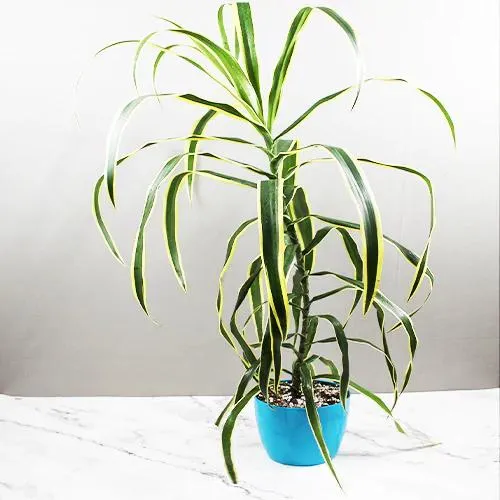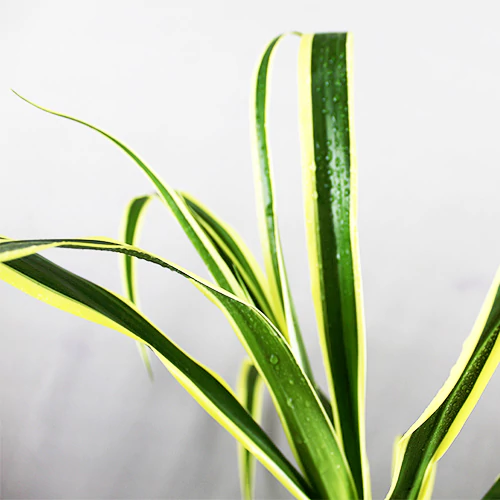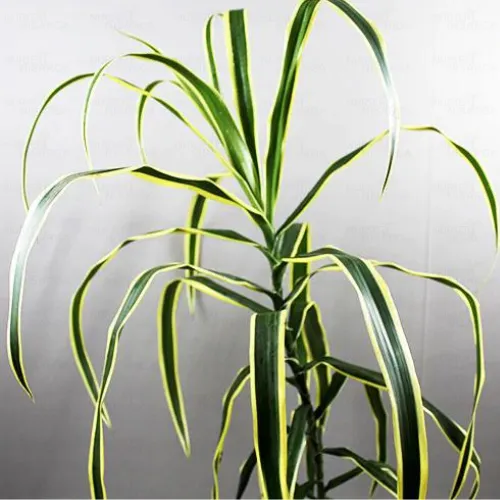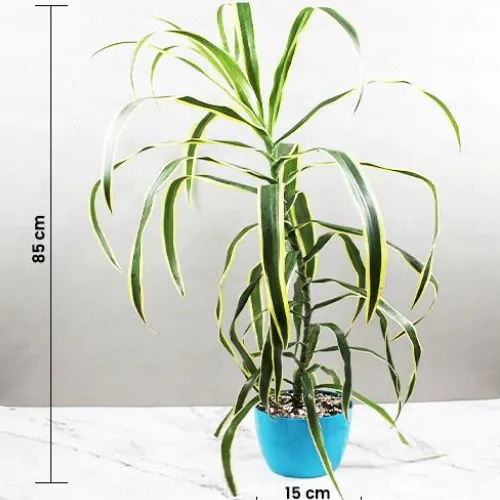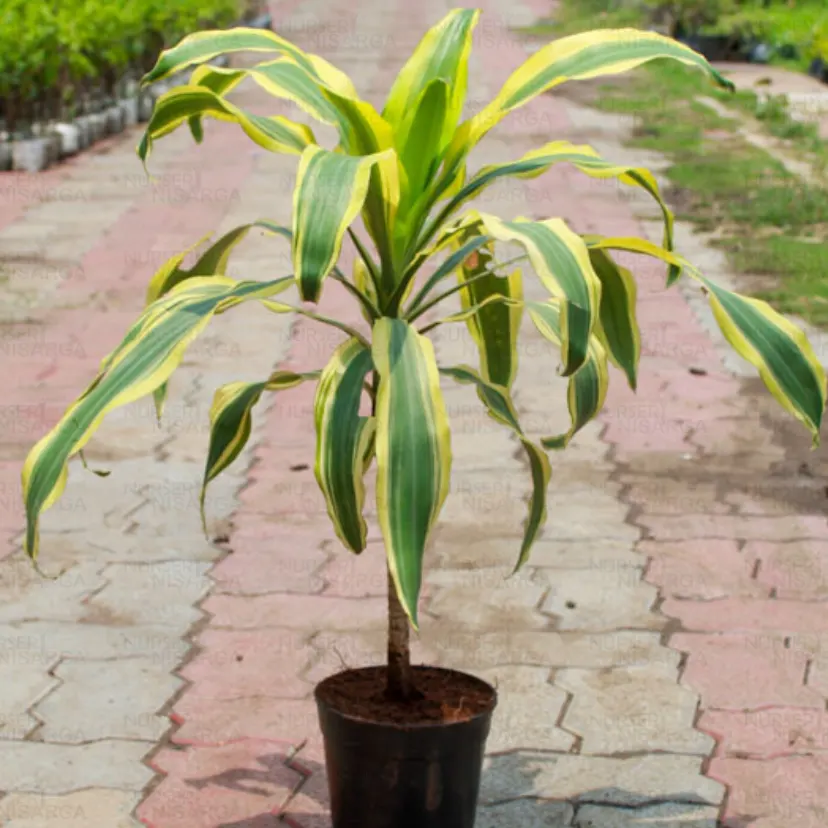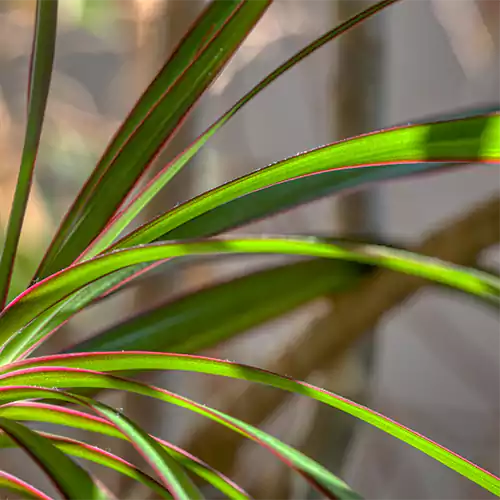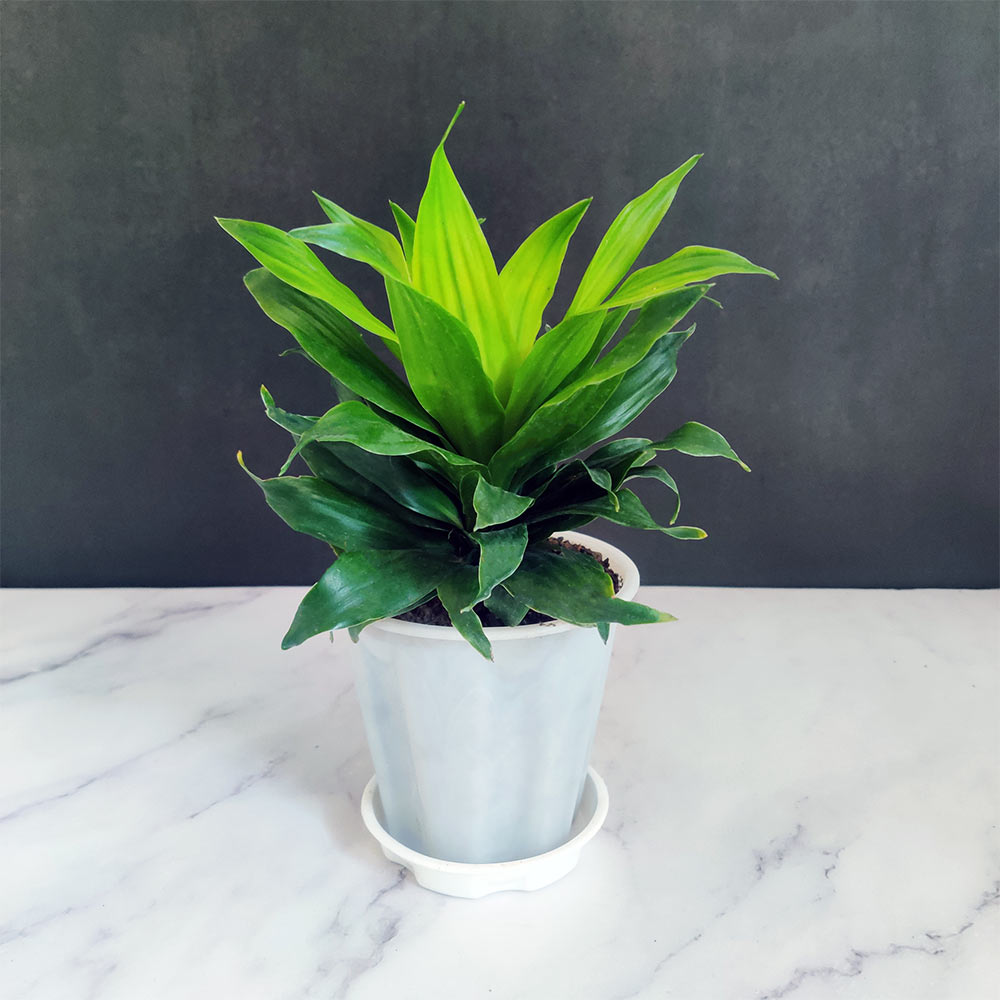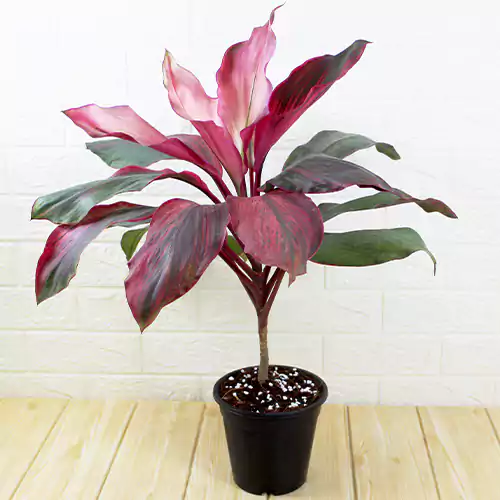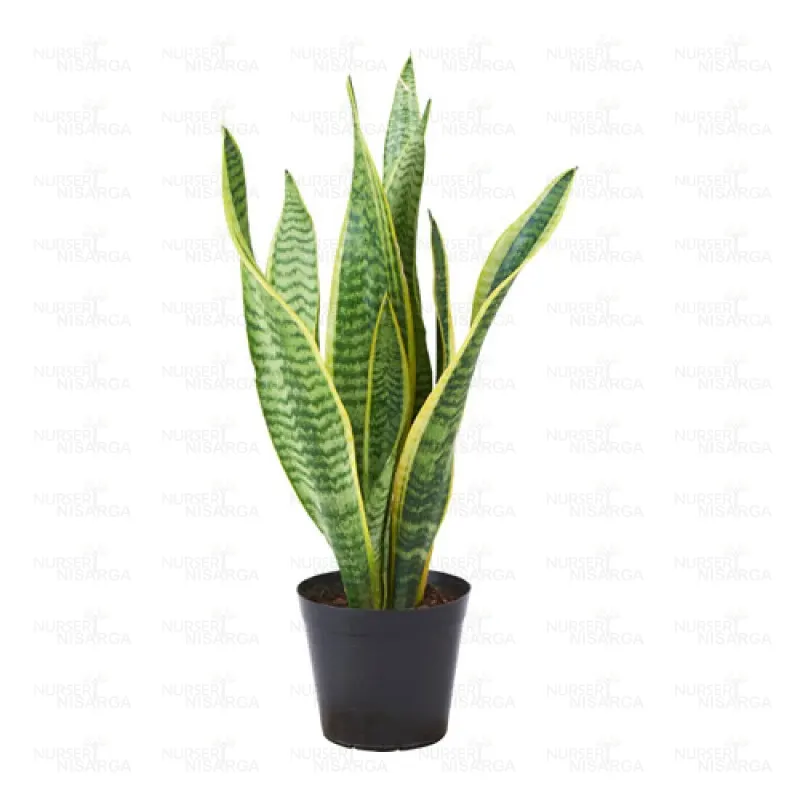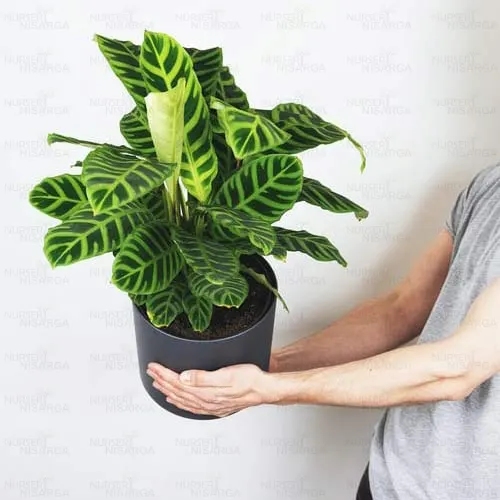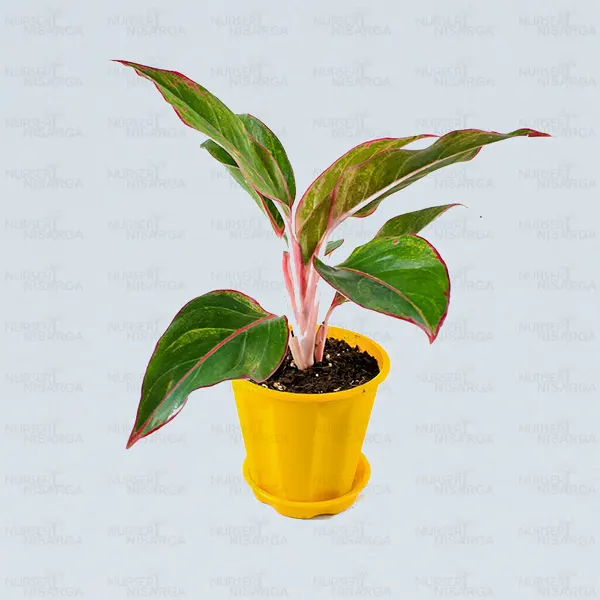Description
Dracaena Plant
The Dracaena is the Most beautiful plant for indoor & outdoor it has widely grown as an ornamental plant and houseplant, valued for its richly colored, evergreen leaves, and thick.
Dracaena has green leaves that have a yellow and light green stripe. Those dark-green leaves are 2 ft (60 cm) long and up to 4 inches (10 cm) wide. The plant will always look full and profuse. Grown for their attractive foliage, dracaenas are popular plants that need very little care. There are over 100 species of dracaena trees and succulent shrubs, although many are used as houseplants because they’re easy to grow and tolerate low light. These tropicals, which are in the Dracaena genus and the asparagus family, are great for adding structure to outdoor gardens, too. In cold regions, they’re treated as annuals. According to research conducted by NASA, dracaenas can clean benzene, carbon dioxide, formaldehyde, and trichloroethylene from indoor air. However, they’re toxic to companion animals like dogs and cats and should be kept out of their reach.
Dracaena Care Tips
If you’re wondering how to care for dracaena, we’ve got you covered with these growing tips. In general, dracaena care is relatively simple.
Light
- Filtered indoor light (such as through a sheer curtain in front of a sunny window) or a semi-shade spot is an ideal location. Never place a dracaena plant in direct sun, as the rays will scorch its foliage.
Water
- Dracaena require less water than most indoor plants. Keep them hydrated by misting the leaves with water and keeping the soil lightly misted (never soggy) as well with good drainage. Always allow the topsoil to dry out before watering. Do not overwater, as it may cause root rot. Drooping or yellowing leaves could indicate over-watering or poor drainage, but don’t worry if you notice the bottom leaves beginning to turn yellow and fall. It is normal for dracaena to shed leaves in order to grow new ones. These plants are sensitive to fluoride, which can be found in tap water, so it’s essential to use purified water when caring for this plant. Leaves with dark brown and dead areas with yellow edges may indicate fluoride toxicity.
Temperatures
- Dracaena prefers temperatures ranging from 65 – 78℉ during the day. Night temperatures can drop about ten degrees cooler, but cold drafts and temperatures below 55℉ will harm the plant. Make sure that you display your dracaena away from any heating or cooling appliances. Natural room humidity is fine seeing as the dracaena is such a hardy houseplant, but it does prefer the higher humidity of its natural rainforest habitat. You can improve humidity with a commercial humidifier or by placing the plant on a tray of pebbles, with water reaching just below the pebble tops.
Toxicity
- Toxic to cats and dogs, if eaten. Cats may have dilated pupils, and both cats and dogs can present symptoms such as vomiting, excess saliva, and lack of appetite. As a pet owner, it’s important to select your houseplants with care.
Pests and Problems
- Dracaena plants are generally free from serious insect or disease problems. However, you should watch out for mealybugs, spider mites, and scale. Mealybugs and scale can both be treated with an insecticide that contains pyrethrin.

